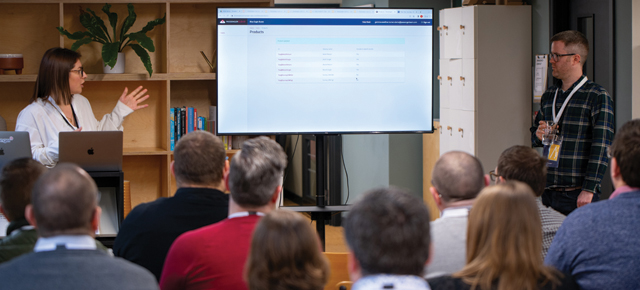Technology firm has worked closely with bus operators to launch a new fares finder in its ‘white-label’ mobile app product used by 35 companies

Bus fare information, or the lack of it, has always been perceived by many within the sector as one of the greatest barriers to bus use by non-users. Indeed, according to watchdog Transport Focus, 33% of non-users – people who don’t know much about their local bus services – would like to know more about what fare they are likely to be charged before boarding a bus.
Now, technology company Passenger is aiming to solve some of the mystery surrounding bus fares with the launch on February 12 of real-time bus fare information in its ‘white-label’ mobile app product which is used by over 35 bus operators for ticket sales and travel planning.
The first operators to launch the new service are Go-Ahead subsidiaries Brighton & Hove Buses and Metrobus along with municipal operators Nottingham City Transport, Reading Buses and Warrington’s Own Buses.
The new feature enables bus passengers to determine their journey’s cost before boarding, a first for the app. Alongside information about the tickets that can be purchased on the bus, there are also details about alternative products that are available for the journey such as mobile tickets or other fare promotions, and operators have the option of allowing passengers to buy those tickets directly within the app.
The initiative is the first to utilise the NeTEx fares dataset, which is publicly accessible through the Department for Transport’s Bus Open Data Service (BODS).
The launch of Passenger’s new service marks the culmination of several months of work where the Bournemouth-based technology firm has worked closely with partner operators at workshop events hosted last summer to not only develop the look and feel of how the fares data is presented in the app but also to create new tools that will allow operators to review their fares data before the information goes live.
More importantly, those tools also support operators in becoming BODS compliant by bringing the data to life – an important factor to consider when BODS launches a hard block on all non-compliant data later this year.
Before the launch of the new service, Passenger said it took significant effort and cost for operators to see errors in their NeTEx datasets easily. With many bus operators investing significant resources in publishing data via the BODS platform, the project is also a highly visible return on that investment. Passenger added the app update is based on the currently available data and as BODS evolves, more complex ticket products, such as time-based capped fares may be included in the app.
As we break down the traditional barriers, trying the bus for the first time has never been easier
“The introduction of fare information to the Passenger app, and simultaneously to operator websites, is a huge milestone,” said Tom Quay, Passenger’s chief executive. “When the DfT announced it was adopting the NeTEx standard for BODS, it was widely unknown in the UK. We’ve seen first-hand how much time and effort operators have invested in getting to this stage with BODS, so we’re delighted to be delivering a return on that – and one that has the potential to be game-changing for customers. As we break down the traditional barriers, trying the bus for the first time has never been easier.”
This story appears inside the latest issue of Passenger Transport.
DON’T MISS OUT – GET YOUR COPY! – click here to subscribe!









